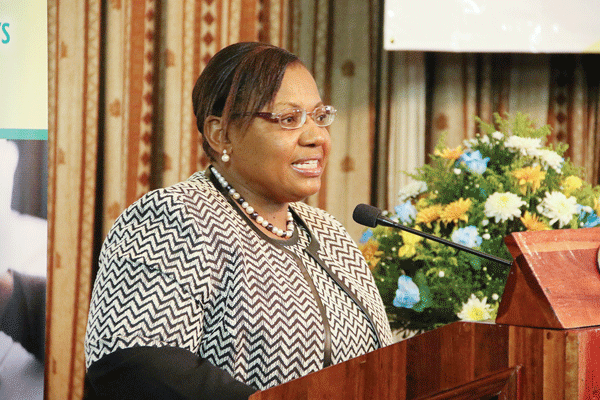
BY FIDELITY MHLANGA
The inability by the Zimbabwe Revenue Authority (Zimra) to collect tax effectively is evidence of rampant corruption and low business levels in the country, analysts have said.
Zimra chairperson Willia Bonyongwe revealed that the taxman was collecting only 30% of potential tax revenue.
Bonyongwe said the authority would soon introduce stiffer penalties to enforce compliance.
Zimra’s annual gross collections amounted to $3,462 billion last year when potential collections could have topped $10 billion.
Zimbabwe National Chamber of Commerce CEO Chris Mugaga said the revelation that Zimra was collecting only 30% of the potential tax revenue was a strong indication of low tax efficiency and the dwindling formal sector.
“Saying Zimra is collecting only 30% is revealing. It’s an indicator of the degree of corruption in the country coupled with lack of business confidence where businesses say we won’t pay tax because it will be stolen,” he said.
“She [Bonyongwe] is confirming something which is disappointing; that confidence in tax efficiency is low in Zimbabwe and that is worrying.
- Chamisa under fire over US$120K donation
- Mavhunga puts DeMbare into Chibuku quarterfinals
- Pension funds bet on Cabora Bassa oilfields
- Councils defy govt fire tender directive
Keep Reading
“Zimbabwe government gets the biggest chunk of its income from tax, more than any country in sub-Saharan Africa, meaning to say if Zimra collects a dollar, 90% of that is going to government.”
He said this also confirmed that the formal sector had been heavily superceded in growth by the informal sector.
Mugaga said Zimbabwe National Chamber of Commerce was doing a survey to understand the nature and dynamics of the informal sector under the state of the economy survey to be launched in November.
Labour and Economic Development Research Institute of Zimbabwe senior research economist Prosper Chitambara, said while the taxman was failing to collect all potential tax revenue within the informal sector, the solution was to grow the economy to enable the sector to contribute reasonably to the fiscus.
“The revenue is in the informal economy, as you can see the economy is highly informalised,” he said.
“It is, however, difficult to collect taxes from these informal businesses because most of these guys are essentially living from hand to mouth.
“The solution is to grow the economy. We need to address the structural reforms to address the structural problems of high informality.”
Chitambara said for the country to realise more tax revenue, there was need to deal with structural reforms such as the high cost of doing business and to also curb rampant corruption.
“The country needs to address the issue of inadequate infrastructure, strengthen key economic institutions like parastatals, improve property rights, and improve transparency in the economic management” he said.
“Also, there are a lot of leakages through tax evasion and tax avoidance and I think these two factors account for most uncollected tax.”
The country is experiencing an economic crisis which is characterised by a debilitating liquidity crunch, crippling cash shortages, declining investment inflows, company closures and job losses.
In the first half of 2017, more than 2 000 workers lost their jobs through retrenchment, meaning that the tax collector has also lost on potential revenue.
Economist Clemence Machadu said the formal economy was carrying the burden of paying tax whereas informalised businesses were not paying.
“I can’t say we are undertaxed because we have a situation where there is a small enclave of workers and companies in the formal sector in a highly informalised economy,” he said.
“That mickey-mouse formal population is the one that is paying taxes and government, which is limited in terms of sources of funding, has shown overreliance on that enclave by raising tax levels which is akin to milking a dying cow.
“You have seen how civil service unions even rejected the national health insurance scheme which was proposing additional taxes.”
Zimra is intensifying its revenue collection thrust through enforcing fiscalisation.
The enforcement has seen the taxman exceeding its August collection target by 15% after collecting $307,95 million against a target of $267,66 million.











